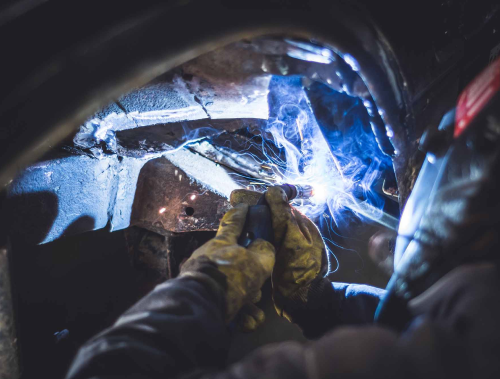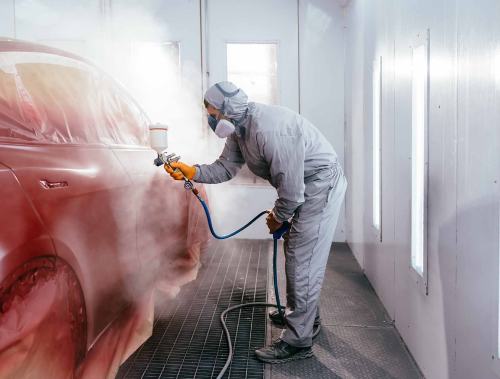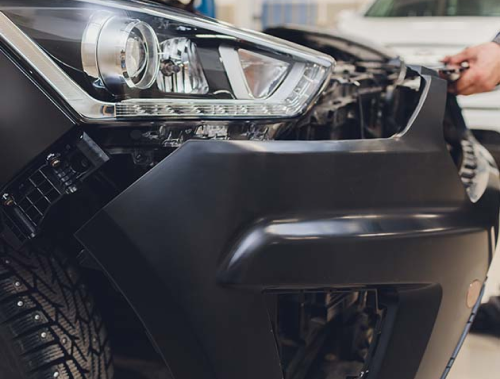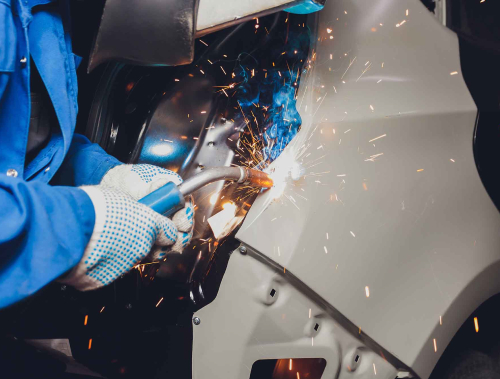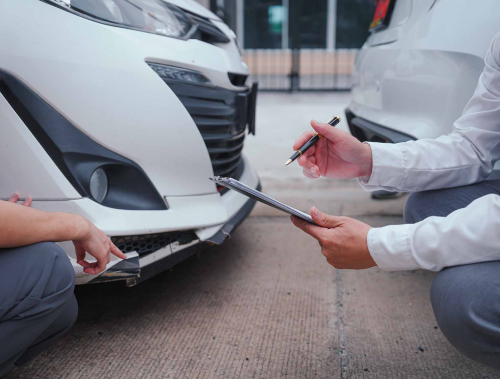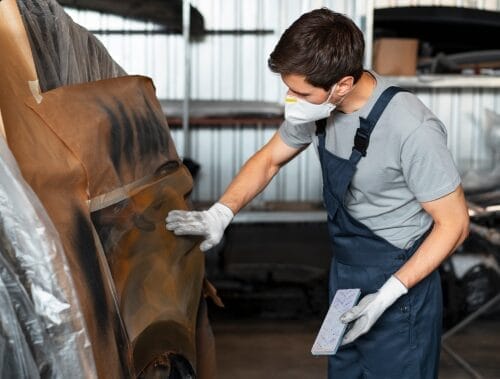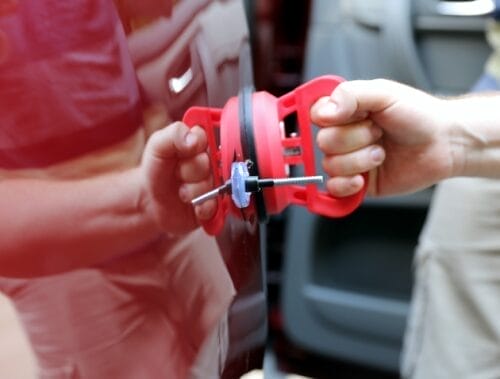Rust and corrosion can significantly shorten the lifespan of your vehicle, leading to costly repairs and a weakened structure. Preventing rust is essential for maintaining the integrity and appearance of your car. Understanding the causes of rust and taking proactive measures can help protect your investment for years to come.
Understanding Rust and Corrosion
Rust and corrosion occur when metal is exposed to moisture and oxygen, causing a chemical reaction that leads to deterioration. Several environmental factors can accelerate this process, especially in certain regions.
Causes
Rust forms when iron reacts with oxygen in the presence of water. This process, known as oxidation, leads to the formation of iron oxide, or rust. Over time, this reaction can cause significant damage to your vehicle’s metal parts.
- Road Salt: Used in winter to melt ice, road salt is highly corrosive and can accelerate rust formation.
- Coastal Air: Salt in the air near coastal regions can contribute to quicker rusting of vehicles.
- Humidity: High humidity levels provide a consistent source of moisture, promoting rust even in warmer climates.
Effects on Vehicles
Rust compromises the strength and integrity of the car’s body and chassis. Over time, rust can cause holes and weaken critical structural components, making the vehicle unsafe to drive.
Addressing rust damage can be costly. Once rust penetrates the metal, extensive repairs or even part replacements may be necessary to restore the vehicle’s safety and appearance.
Preventive Measures
Taking proactive steps to prevent rust can save you from expensive repairs and extend the life of your car. Regular maintenance and protective treatments are key.
Regular Cleaning
Regularly washing your car is crucial, especially during winter when road salt is prevalent. Washing removes salt and other contaminants that can trap moisture and accelerate rusting.
Some techniques for washing to remove road salt and contaminants include:
- Use a High-Pressure Hose: Focus on the undercarriage and wheel wells, where salt tends to accumulate.
- Hand Wash: Use a car wash soap and soft sponge to clean the body, paying special attention to crevices and seams.
- Dry Thoroughly: Ensure the car is dried completely to prevent moisture from lingering and causing rust.
Protective Coatings
Applying a coat of wax provides a protective barrier against moisture and contaminants. Waxing also enhances the car’s appearance and makes it easier to clean.
Undercoating involves applying a protective layer to the underside of your car. This layer helps prevent rust by repelling water, salt, and other corrosive substances. Professional undercoating services are recommended for best results.
By incorporating these preventive measures into your regular car maintenance routine, you can effectively protect your vehicle from rust and corrosion, ensuring it remains in good condition for years to come.
Addressing Exposed Areas
Even with regular maintenance, your car is bound to get some chips and scratches over time. Addressing these promptly can prevent rust from taking hold.
Paint Chips and Scratches
Small chips and scratches can quickly turn into rust spots if left untreated. Touching up these areas as soon as they appear helps protect the metal underneath from moisture and oxidation.
Use touch-up paint that matches your car’s color. Apply a thin layer to cover the chip or scratch, followed by a clear sealant to protect the new paint. This process not only prevents rust but also maintains the car’s aesthetic appeal.
Inspecting and Treating Existing Rust
Regularly inspect your car, especially the undercarriage, wheel wells, and other vulnerable areas, for any signs of rust. Early detection is crucial in preventing minor rust spots from becoming major problems.
If you find rust, address it immediately. Use sandpaper or a wire brush to remove the rust, then apply a rust converter to neutralize any remaining rust. Finally, cover the area with primer, touch-up paint, and sealant to prevent recurrence.
Additional Protective Measures
Using Rust-Proofing Products
There are various rust-proofing products available, including sprays, gels, and coatings. These products can be applied to the undercarriage, wheel wells, and other high-risk areas to provide an additional layer of protection against rust.
Professional rust-proofing services offer more comprehensive protection. These services use high-quality products and professional-grade application techniques to ensure thorough coverage and longer-lasting protection.
Temporary Moisture Barriers
Products like WD-40 can act as temporary moisture barriers, providing short-term protection against rust. Spraying these products on vulnerable areas can help repel moisture and prevent rust formation.
While temporary moisture barriers can be useful, they are not a substitute for long-term rust prevention measures. Regular cleaning, proper maintenance, and professional rust-proofing are necessary for sustained protection.
Seasonal & Tips
Different seasons bring different challenges for rust prevention. Here are some tips to help protect your car throughout the year.
Winter Care
Winter conditions, particularly in areas where road salt is used, can accelerate rust formation. Frequent washing, especially of the undercarriage, helps remove salt and other corrosive substances.
Applying undercarriage sprays and treatments before winter can provide an extra layer of protection against salt and moisture. These products help prevent rust by repelling water and salt from the car’s underside.
Coastal and Humid Environments
Cars in coastal areas are more susceptible to rust due to the salty air. Regular washing and applying protective coatings can help minimize exposure to salt and moisture.
Keep your car clean and dry, especially if you live in a humid or coastal environment. Regularly wash and wax your car to provide a protective barrier against salt and moisture.
Maintenance and Monitoring
Routine maintenance and monitoring are key to preventing rust and keeping your car in good condition.
Regular Inspections
Perform routine checks for any signs of rust and corrosion. Look for bubbling paint, discoloration, or rough spots on the surface, as these can indicate the beginning stages of rust.
If you find any signs of rust, address them promptly. Early treatment can prevent the rust from spreading and causing more extensive damage.
Professional Services
Professional rust-proofing and undercoating services provide comprehensive protection for your vehicle. These services use advanced techniques and high-quality materials to ensure long-lasting rust prevention.
Choose reputable service providers for rust-proofing and undercoating. Look for providers with positive reviews and proven track records to ensure you receive high-quality service.
Conclusion
Preventing rust and corrosion involves regular cleaning, applying protective coatings, addressing exposed areas promptly, and using rust-proofing products. Regular inspections and professional services can also help maintain your car’s condition. Adopting these preventive measures will help keep your car in excellent condition, prolong its lifespan, and maintain its value. Taking proactive steps to prevent rust and corrosion is an investment in your vehicle’s future. If you notice rust beginning to develop on your car, consult the professionals at Stonewall Collision & Auto Paint to address it promptly and avoid additional damage.

